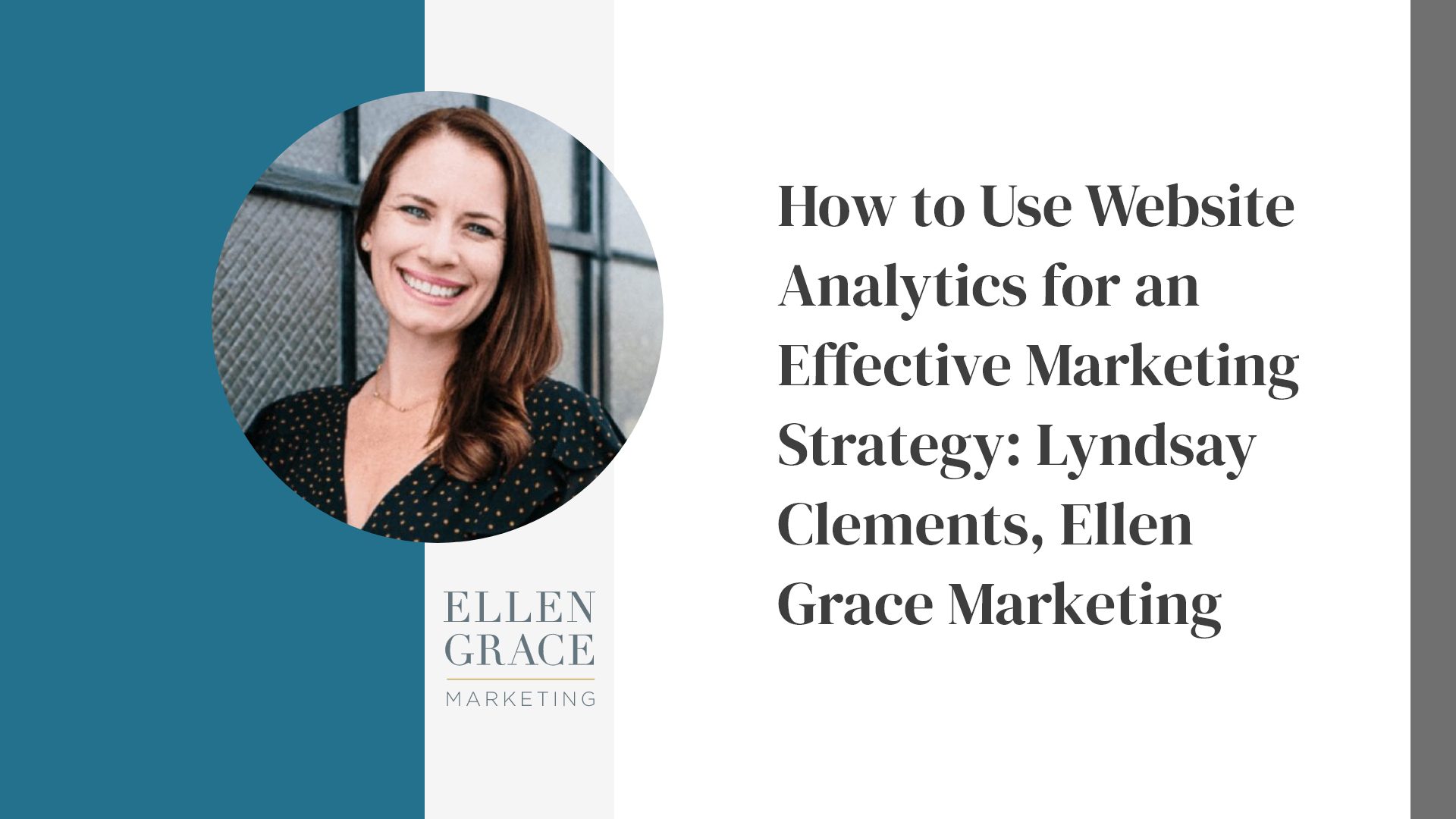Over the past few weeks, we’ve looked at not only what website analytics are but also how to get actionable analytics on your website through Google Analytics too. One of the big reasons that analytics are helpful is that they can highlight where there might be issues on your website, but they can also inform creating an effective marketing strategy for your business.
We’re excited this week to have an expert – Lyndsay Clements of Ellen Grace marketing – weigh in on the topic of how analytics can and should drive your marketing strategy. Lyndsay is sharing with us how she uses data to help her clients and how you can do it too.

Lyndsay Clements, Ellen Grace Marketing
Take a look at where your marketing is today. Are you getting the results you want? Is your hard work paying off the way you want it to?
If you are tired of spinning your wheels, continuing to do the same things simply will not work. You’ll need to take an inventory of your marketing, determining what is working, what you need to improve, and where to get the help you need. You can do this by looking at your data and analytics. The best marketers, whether it be social media professionals, blog writers, email marketers, or web developers, all use data to make smart decisions that drive leads and sales. The more you can see, the more you can do.
Step 1
First, you’ll need to decide what you are trying to achieve through your marketing. Ideally, you want your customers to perform a certain action once seeing your post or opening your email. Some common things business owners want their customers to do would be to:
- make a purchase directly from their website
- make a donation to a cause they support
- sign up for their email list
- read through their blog posts
- make an appointment to meet in person
- watch a video about their products or services
- follow them on social media
- attend an event that they are a part of
If you don’t know what you are trying to achieve, you won’t be able to set clear goals or allocate your marketing dollars in the ways that work best for your business.
Step 2
Once you have a clear idea of what you are trying to achieve, it will be time to set up your conversion goals in Google Analytics. Goals can be set up in one of three ways.
- You can create your goals from a template
- You can create custom goals
- You can use smart goals
Template goals are broken down into 4 categories: Revenue, Acquisition, Inquiry, and Engagement. Goal templates are tailored to the industry of your business. If you haven’t selected an industry in your settings, you may not see any template goals available.
Custom goals allow you pull data regarding almost every aspect of interaction with your potential customers. Custom goals can be one of four types. There are destination goals, duration goals, event goals, and pages/screens per session goals.
Smart goals are set up to measure conversions using Google Ads Conversion Tracking or imported Analytics Ecommerce transactions. Your analytic must meet certain prerequisites before Smart Goals are available. If you have access to Smart Goals, they are a great way to optimize your Google ad performance.
Adding Value To Your Goals…
Other than smart goals, all goals allow you to add a monetary value. For non-monetary measurements, you can add values of your own. For example, I use $5 for my email subscribers.
Step 3
Now it’s time to measure the channels of traffic that are hitting these goals the most. Your marketing channels are things such as paid, organic, email, direct, and social. You can even break it down to specific platforms such as Facebook, Instagram, etc.
Do the channels you spend the most time on equate to the results you’re seeing? If one channel is blowing the others out of the water, it would be a good idea for you to invest a bit more time there.
Before spending your time doing any more marketing, it’s a good idea to understand which channels are performing the best so you can focus on these as you continue to grow your business.
Get In Touch
Have more questions about utilizing analytical data to drive your marketing strategy? Get in touch with Lyndsay:
@ellengracemarketing

